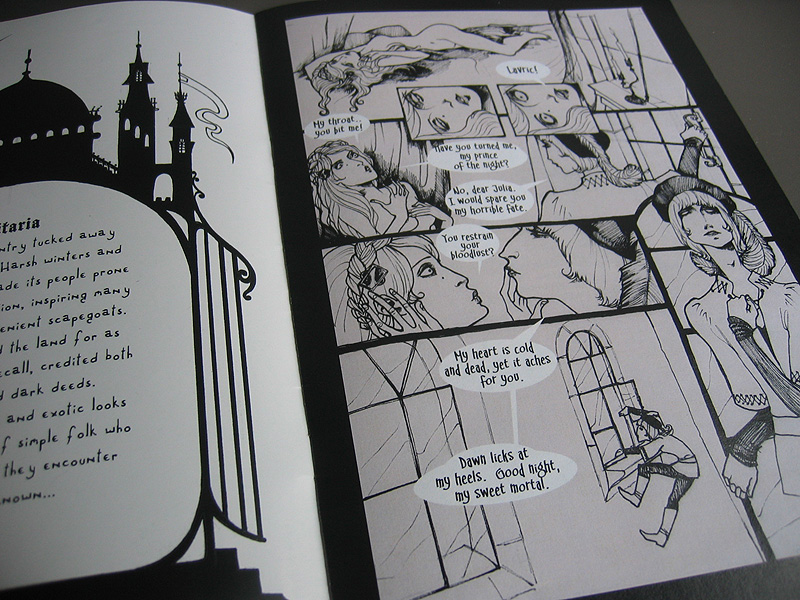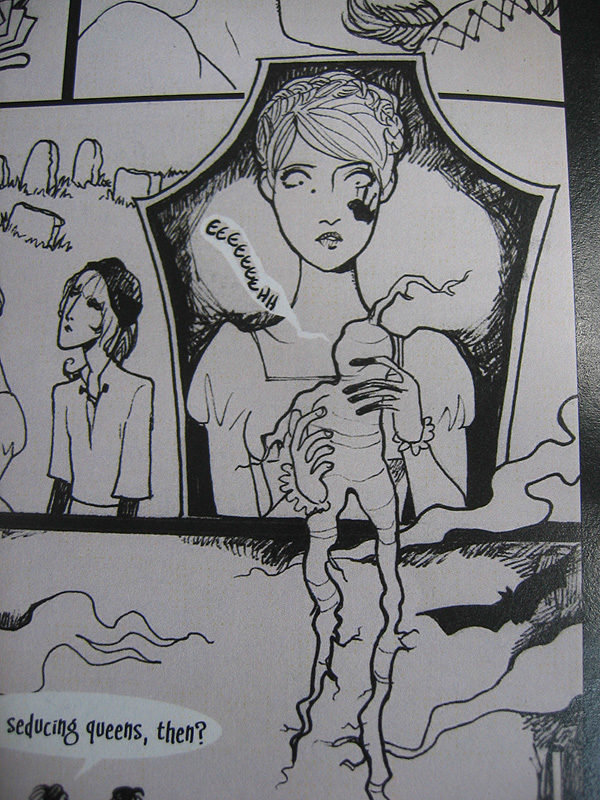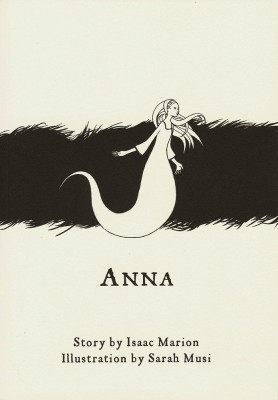Date Read: 6.19.09
Book From: Personal collection
Reviewer: Emera
Vampire Deluxe!, by Lawrence Gullo and David Ryder Prangley, is a profoundly silly vampire comic featuring two medieval lads who masquerade as princes of the night in order to sex (and rob) the ladies. Pretty good plan, huh?
The concept is good enough to deserve a longer treatment, at least in my opinion, but here it sets up a pleasurably nonsensical plot involving midnight mandrake-digging expeditions, voluptuous ladies in white gowns, and dialogue like “Take that, harlot.”
Gullo’s characters are distinctively gaunt and elegant, and while his stylized anatomy can make for stiff posing, his characters’ hilarious facial expressions often sell the punchlines of the sardonic jokes – something I also find to be the case with My Life in Blue, his first webcomic. (Vampire Deluxe! also happens to be set in Gullo’s mythical Eastern European homeland, Baritaria, the subject of his second webcomic, Baritarian Boy.)
All in all, I had me some good times with Vampire Deluxe! – it’s a quick and marvellously fun read for any fan of Gothic goofiness. (If you like Young Frankenstein, try…)
Go to:
Lawrence Gullo: bio and author page
My Life in Blue
Baritarian Boy


